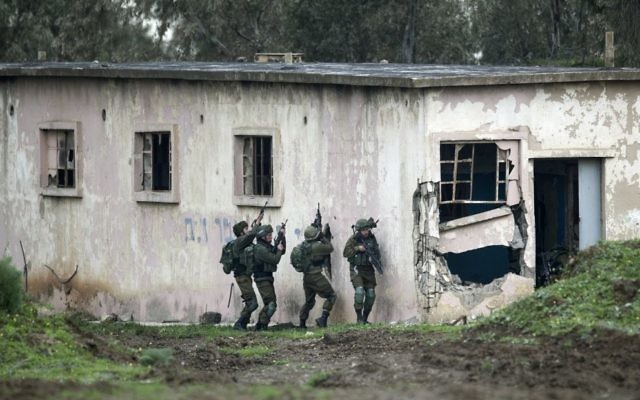Israel uneasy as Syrian conflict threatens Golan
Tensions are flaring between Damascus and Jerusalem, after the most significant clash since the start of the Syrian civil war six years ago.

Tensions are flaring between Damascus and Jerusalem, after the most significant clash since the start of the Syrian civil war six years ago.
The Syrian regime fired a surface-to-air missile packed with hundreds of kilograms of explosives towards the Jordan Valley in the early hours of last Friday, prompting Israel to unleash a new missile defence system to neutralise it.
There were no injuries from this, or other missiles that Syria fired. However, it forced Israel to come clean about conducting air strikes in Syria, something that it has tried to avoid admitting, and this caused a furious reaction from Russia, which supports the Syrian regime. The Kremlin summoned the Israeli ambassador to Moscow for a dressing down just one day after he started his job.
In the space of a week, the Syria crisis has gone from being something that Israelis can regard as out of sight and out of mind to a source of intense worry.
Residents of the Golan Heights have long been worrying about what is happening over the Syrian border, though even there – amid the relaxed, heavily agricultural communities – the clashes between the regime and rebels can seem a long way away. But far from the Syrian border, residents heard explosions early last Friday morning.
The sound of a missile defence system neutralising the Syrian missile hurtling towards the Jordan Valley was heard in Jerusalem and Modi’in, reminding Israelis just how small their country is – and forcing officials to provide explanation, and admit that it was a response to air strikes in Syria.
Shortly after the incident, Prime Minister Benjamin Netanyahu was openly discussing strikes, intended to stop groups like Hezbollah getting their hands on weapons that could seriously harm Israel, even though until this point such strikes were kept quiet. “When we detect attempts to transfer advanced weapons to Hezbollah and we have the intelligence and feasibility to carry out an operation, we will work to prevent it,” he said.
The incident has left analysts puzzling over how Syria dared to fire towards Israel. This question arises because Russia props up the Syrian regime of President Bashar al-Assad, and has relations with Israel. Moscow is thought to have reached understandings to prevent harm to Israel. “Russia is quite an enigma because they support [Assad’s] regime, which I’m not sure can act without Moscow’s say-so,” Professor Moshe Maoz, Hebrew University’s leading Syria expert, told The AJN.
It is unclear whether the Syrian regime was prepared to act against Israel in defiance of Russia, whether it gave the go-ahead to fire, or whether there is another explanation. But analysts say it is clear that the incident shows that Netanyahu’s summit with Russian President Vladimir Putin in Moscow a fortnight ago may not have yielded all the guarantees that he wanted.
As the political and military echelons consider the impact of recent developments on international ties, the Israeli public is getting its head around the fact that the Syria conflict feels closer than ever. “There were certain incidents [of fire over the border into Israel] throughout the years of the conflict so far which people pushed aside as mistakes or things that weren’t intentional,” said Professor Tamar Hermann, a political scientist and pollster, adding that people can no longer believe this innocent explanation.
She said that the recognition of the threat emerging from Syria is especially hard for many Israelis to get their heads around. “After the First Lebanon War, which Syria did not intervene in, there was a sense that Syria is there but doesn’t see itself as part of the Palestinian conflict and was seen as a background feature when it came to Israel’s security.”
NATHAN JEFFAY

comments